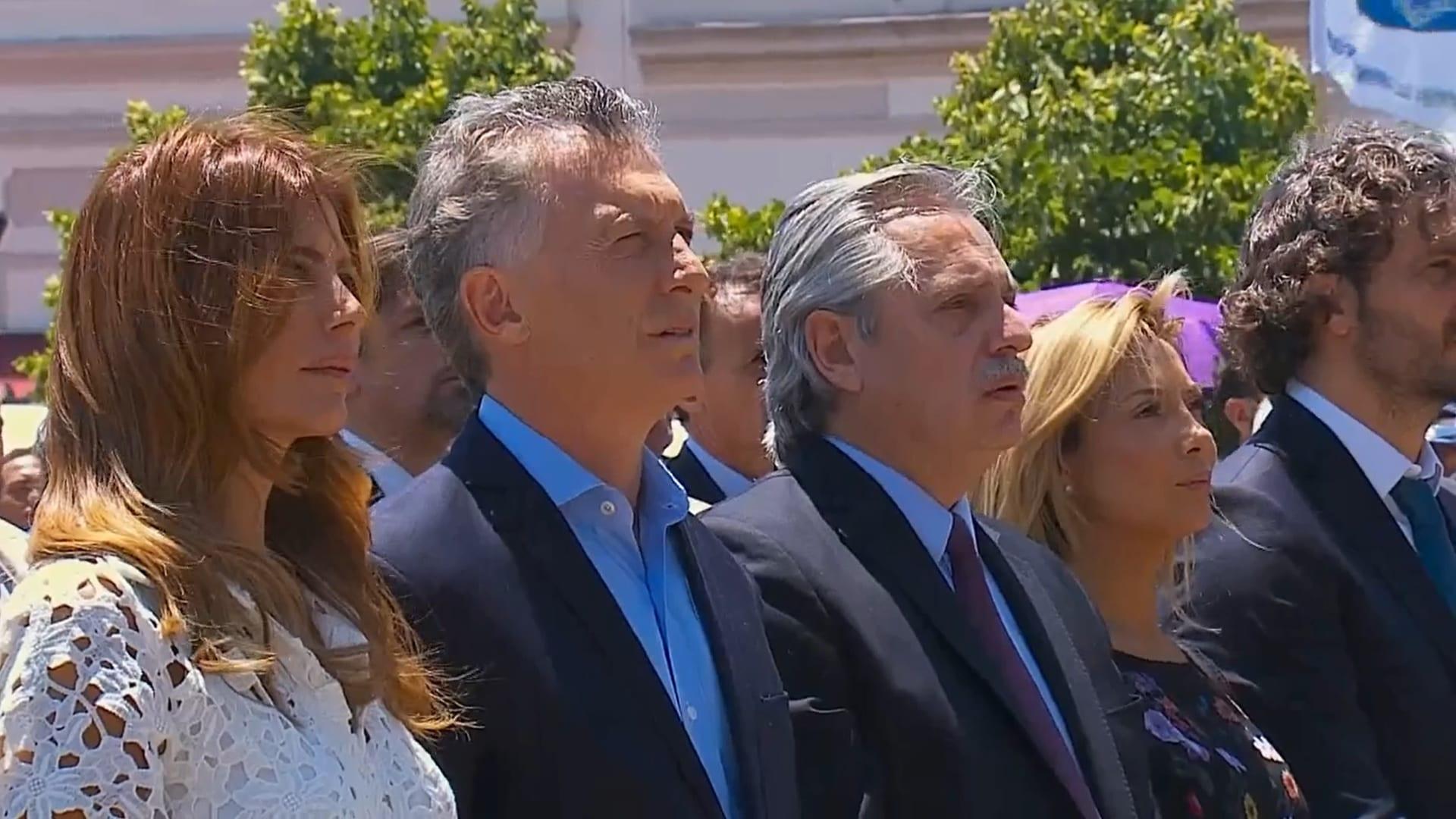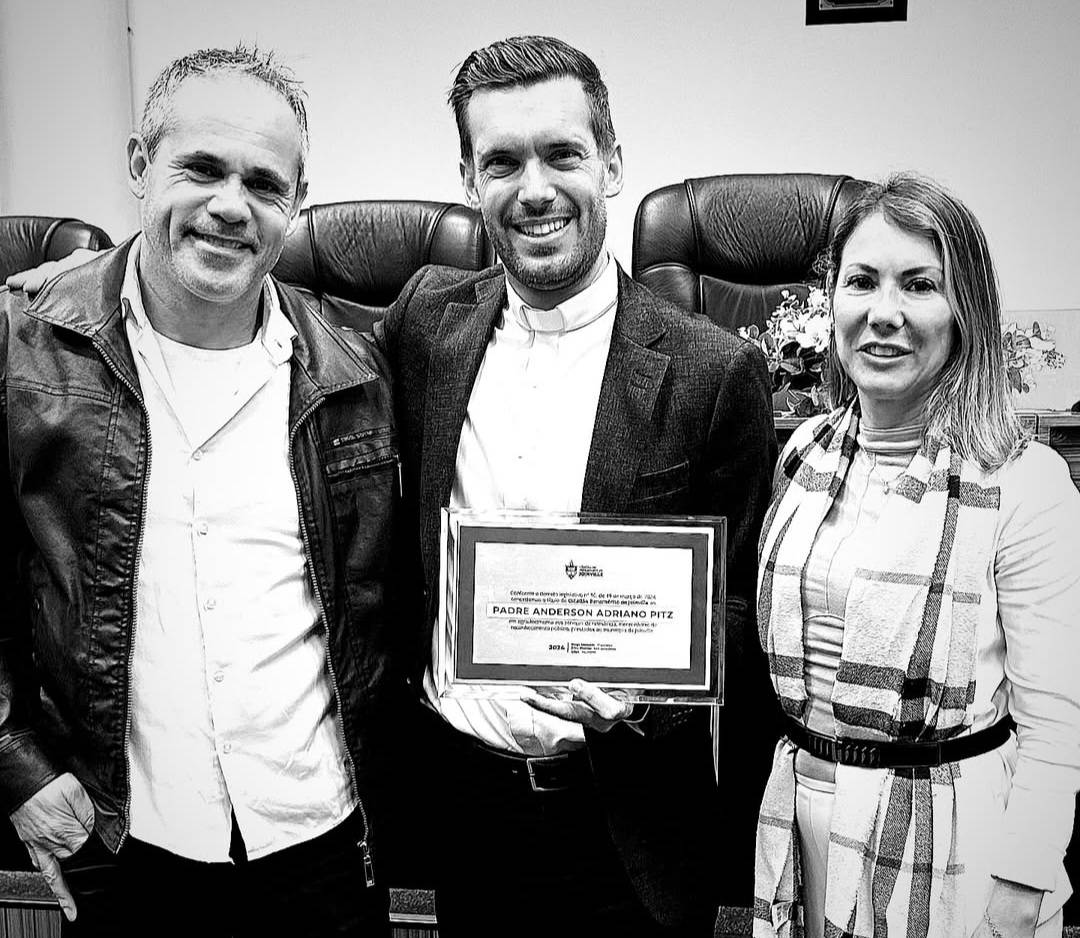ROME – Sunday, when the Church celebrated the feast of the Immaculate Conception, Argentina saw an event labeled by participants and observers as “historic:” The incumbent president and the president-elect took part in a Mass in the country’s famed shrine of Lujan and shared the sign of peace with an embrace rarely seen in the country’s politics.
The gesture between incumbent President Mauricio Macri and Alberto Fernandez took place two days before the transfer of power set for Dec. 10, and four years after Cristina Fernandez de Kirchner, the former president and current vice president-elect, refused to take part in the transfer of power ceremony after her 8 years in office.
Fernandez de Kirchner was nowhere to be seen on Sunday.
“To continue building this blessed nation we need everyone. No one is left over in this construction,” was the message from Lujan Archbishop Jorge Eduardo Scheinig, who delivered the homily in a Mass presided over by Bishop Oscar Ojea, the president of the Argentine bishops’ conference.
Much like then-Cardinal Mario Bergoglio – today Pope Francis – would do when he led the Te Deum celebration to mark Argentina’s national day every May, Scheinig didn’t point his finger at any individuals, but also didn’t skirt away from denouncing what he believes is wrong in Argentina today: Corruption, poverty, and division.
(Fernandez de Kirchner also avoided the Te Deum celebrations, after her late husband and then president got offended when the future pope spoke about corruption during one of his homilies.)
“The union of the people is a task, a struggle that begins in the heart of each one and there we must be able to overcome deep selfishness, vanities, narcissism, evil and even the lie we create to sell an image that is not ours,” the prelate said.
Macri and Fernández were accompanied by their wives and members of their respective cabinets, as well as political, union and social leaders. Also present were leaders of other faiths, including Islam, Judaism and various Christian denominations, all of whom joined the thousands of faithful present in the esplanade facing the shrine where the liturgy took place.
“On this day of the Virgin, we found it appropriate to invite you to pray for the motherland,” said Scheining.
RELATED: Our Lady of Lujan is a meeting point of Argentine Catholicism
“We are not naive, we do not believe that a celebration is the solution to the problems, but we are sure that this gesture that we are sharing speaks for itself,” he said. “And we hope that in these historical days and with the help of the Almighty, it will become a door to entering this new stage, with sincere desires for unity and peace.”
The challenges the country faces are many, including a poverty rate estimated to be 30 to 40 percent, which is even higher for children, half of whom don’t have enough food to meet recommended nutritional requirements.
According to Scheining, Our Lady of Lujan is a “valuable help,” and source of grace for all Argentines, a diverse and rich nation, but one that has also suffered much over the past few years.
“No individual or isolated group makes up the nation,” he said. “The country is everyone. Communion among ourselves is not a strategic issue: It makes the essence of who we are at our root and what we can be.”
“We must do everything possible to resist and not be tempted by the desire to destroy the other,” he said. “In the homeland, the other is my sister, the other is my brother.”
“We are all aware that what is coming – what we are already living – in the world, in our Latin America, is not easy,” Scheining said, in an apparent reference to the social uprisings fueled by inequalities, corruption and poverty that have shaken the continent in these past months.
“To continue building this blessed nation, everyone is needed,” he insisted.
Scheinig warned that Argentines “are exhausted from so many disagreements and fights,” but acknowledged that the unity needed is not “hegemonic,” but unity is nonetheless necessary to build a nation and leave “the maze in which we now are.”
“Pope Francis invites us to think about the figure of the ‘polyhedron’ – to live in a unity that harmonically integrates differences,” he said. Another core concept of the pontiff that Scheining said was necessary is the “culture of encounter,” urging for a common “social pact,” with state policies that will last beyond those governing today.
The Mass was organized by Argentina’s bishops’ conference, and it was meant to serve as a sign of unity in a country that is heavily divided due to different political factions.
Macri is the first incumbent president in Argentine history to be defeated in his reelection bid, but he is also the first non-Peronist president to finish his term since the Justicialista Party was founded, in 1946.
Before the conclusion of the ceremony, young people from different religious backgrounds read sections of the Declaration on Human Fraternity, signed by Francis and the Grand Imam of Al-Azhar earlier this year in the United Arab Emirates.
Follow Inés San Martín on Twitter: @inesanma
________________________________________________
Crux is dedicated to smart, wired and independent reporting on the Vatican and worldwide Catholic Church. That kind of reporting doesn’t come cheap, and we need your support. You can help Crux by giving a small amount monthly, or with a onetime gift. Please remember, Crux is a for-profit organization, so contributions are not tax-deductible.
















